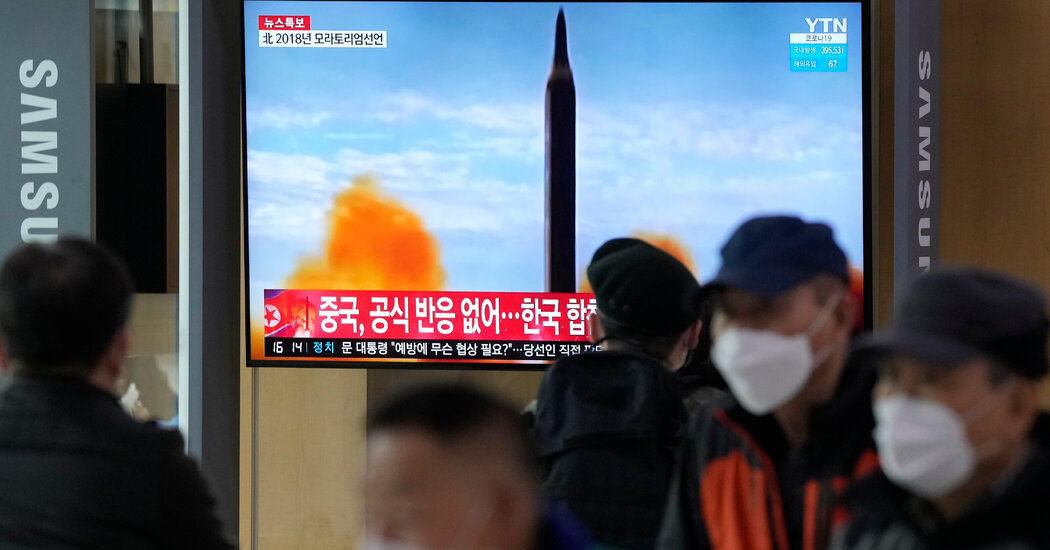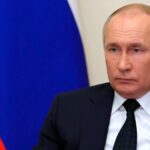
North Korea’s first test of an intercontinental ballistic missile in more than four years drew immediate and strong condemnations from South Korea and Japan. Officials in both nations accused North Korea of threatening regional peace and international security.
Moon Jae-in, South Korea’s president, “strongly denounced” the move in a meeting with his national security council, in a shift from what had previously been carefully worded statements to keep open opportunities for dialogue and engagement with North Korea’s leader.
“This launch means Chairman Kim Jong-un has himself broken the moratorium on ICBMs he promised the international community, causing grave threat to the international community and clearly violating U.N. Security Council resolutions,” Mr. Moon said, according to a statement from his office. Mr. Moon’s term ends in May.
Japan’s prime minister, Fumio Kishida, called the launch “an unacceptable reckless act.”
“The series of North Korea’s acts threaten the peace and safety of Japan, the region and the international community. They cannot simply be accepted,” the prime minister said in Brussels, where he is attending the G7 summit.
Japan’s Ministry of Defense said in a statement that the missile, which landed within the country’s exclusive economic zone less than 100 miles from its coast, threatened Japan’s peace and security and that of the region and the international community.
Both countries said they were in close talks with U.S. officials and counterparts in other nations to assess the situation and heighten alertness.
In Beijing, a Chinese foreign ministry spokesman, Wang Wenbin, reiterated the government’s longstanding calls for talks in a more muted reaction.
“We hope that relevant parties focus on the overall situation of peace and stability on the Peninsula, stick to the right direction of dialogue and consultation, and work together to advance the process of political settlement of the Korean Peninsula issue,” Mr. Wang said.
China has largely urged North Korea and the United States to resolve the impasse themselves, although Beijing has called for sanctions relief and a pause of American military exercises with Seoul in exchange for Pyongyang freezing its nuclear and missile tests.
Makiko Inoue and Claire Fu contributed reporting.




